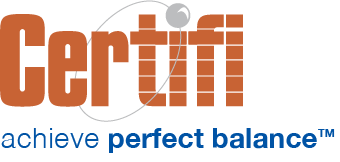The healthcare landscape is undergoing a rapid digital transformation, with artificial intelligence (AI) emerging as a driver of innovation. From streamlining administrative tasks to diagnosing diseases and predicting patient outcomes, health insurance AI use cases may reshape healthcare delivery and improve patient experiences.
As a result, many health plans are asking: Should we add a Chief AI Officer (CAIO) leadership role? While some see it as a critical step towards building a cohesive AI strategy to harness AI’s full potential, others remain cautious. They raise concerns about costs, implementation challenges, and the necessity of a leadership-level AI position.
Here are some pros and cons of naming a Chief AI Officer.
The Case for a Chief AI Officer in Health Plans
- Strategic Vision and Leadership: A CAIO can spearhead a comprehensive AI strategy, aligning it with the health plan’s overall goals and objectives. This centralized leadership ensures strategic direction and prevents fragmented AI initiatives. It can also streamline AI progress reporting so the leadership team gains greater visibility to company-wide AI initiatives.
- Innovation and Efficiency: AI capabilities like predictive analytics and machine learning can optimize administrative processes, automate claims management, and streamline care coordination. A CAIO can champion these innovations, reducing costs and improving operational efficiency.
- Clinical Applications and Value-Based Care: AI can revolutionize clinical decision-making by analyzing vast amounts of data to identify risk factors, personalize treatment plans, and predict patient outcomes. A CAIO can guide the responsible integration of AI in clinical applications, promoting value-based care and improved patient health.
- Data Governance and Risk Management: Implementing responsible AI requires robust data governance frameworks and comprehensive risk management strategies. A CAIO can oversee these aspects, ensuring ethical data use, mitigating bias, and safeguarding patient privacy.
- Talent Acquisition and Development: As AI adoption accelerates, the demand for a limited number of skilled AI professionals in healthcare will soar. A CAIO can lead talent acquisition and development efforts, identifying talent to build a team of experts capable of implementing and managing the health plan’s AI initiatives.
Challenges and Considerations
- Cost and Resource Allocation: Establishing and maintaining a CAIO position and the necessary infrastructure and support systems can be financially demanding. Health plans should consider the return on investment before committing to such a role.
- Skills and Expertise: Finding qualified candidates with the requisite knowledge of both healthcare and AI can be challenging. Health plans should invest in developing internal expertise or partner with external AI consultants to overcome this hurdle.
- Cultural Transformation and Resistance to Change: Integrating AI into existing workflows and processes can encounter resistance from some stakeholders. A CAIO must be a skilled communicator and change agent. They should effectively demonstrate AI’s benefits and address concerns about job displacement.
- Ethical Considerations and Algorithmic Bias: AI algorithms can perpetuate existing biases in healthcare data. A CAIO should prioritize ethical AI development and implementation, ensuring fair and equitable access to healthcare for all patients.
- Regulatory Landscape and Data Privacy: The healthcare industry is subject to strict data privacy and security regulations. A CAIO must ensure compliance and implement robust data security measures.
- A C-Suite AI Role May Be Unnecessary – Not every technological advancement requires a position in the C-suite. It may make sense for some health plans to create a role for an AI leader. But that role doesn’t necessarily need to be a member of the C-suite.
Moving Forward: A Phased Approach
Not every health plan is ready for a full-fledged CAIO position. A phased approach might be more feasible, starting with smaller-scale AI initiatives led by designated AI champions or task forces. As the plan accumulates experience and demonstrates success, its AI capabilities can gradually escalate. Then, it may consider establishing a dedicated CAIO role.
The question of whether health plans should have a CAIO is not a simple one. While the potential benefits of AI in healthcare are undeniable, addressing the challenges and ensuring responsible implementation is crucial. Through careful planning, a phased approach, and a focus on ethics, health plans can harness the power of AI to deliver better, more efficient, and personalized healthcare for their members.
Ultimately, health plans should base the decision to appoint a CAIO on each health plan’s circumstances, risk tolerance, and strategic vision.
Certifi’s health insurance premium billing and payment solutions help healthcare payers improve billing accuracy while reducing administrative costs.



